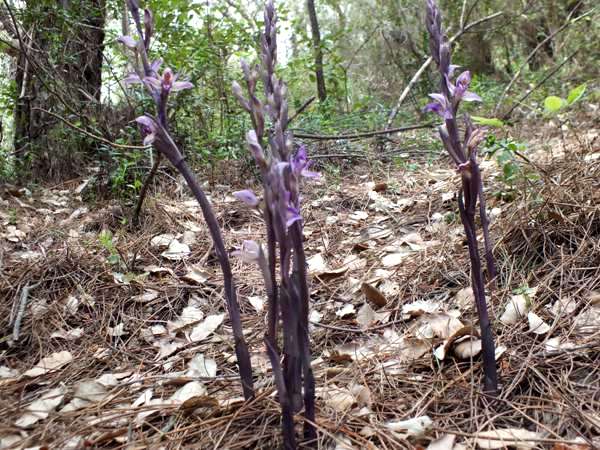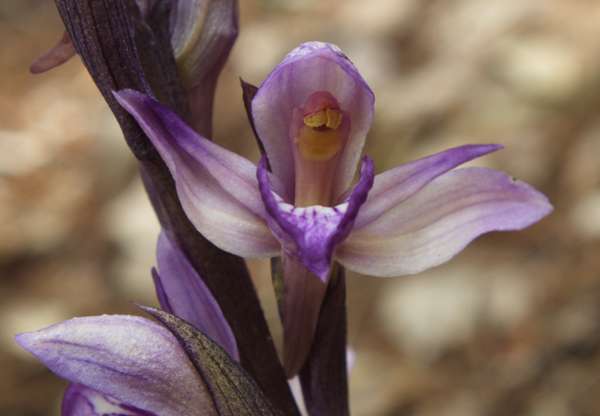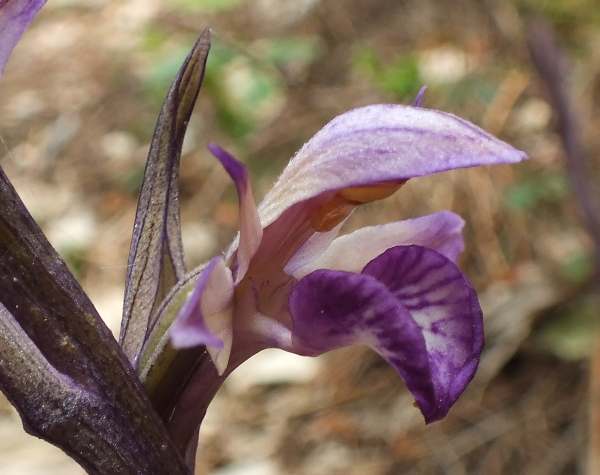Limodorum abortivum - Violet Limodore/Violet Bird's-nest Orchid
Phylum: Magnoliophyta - Class: Liliopsida - Order: Orchidales - Family: Orchidaceae

For such a tall orchid Violet Limodore blends in well with its surroundings making it hard to spot.
This elusive and bewitching orchid is a tall plant but is, nonetheless, challenging to find because it blends in so well with its surroundings.

The Violet Limodore is apparently saprophytic and is dependent throughout its life on mycorrhizal fungi.
For this reason, and because the stem is green and contains chlorophyll, it is unlikely to be parasitic. It is sometimes pollinated by insects, but Limodorum abortivum is also cleistogamous (pollination takes place inside the flower bud).

It is found in coniferous woodland, scrub, and grassy woodland clearings often on rocky terrain. The Violet Limodore is one of those orchids that can disappear for several years during periods of drought or if the vegetation surrounding it becomes too dense, and then it reappears when conditions become more favourable. This may make this orchid hard to find rather than rare.
In the western part of its geographical territory - in Portugal and in Estremadura - plants with shorter spurs and narrower lips are recorded. These plants are distinguished as var. trabutianum
The specimens shown on this page were photographed in the Algarve and the Lot Valley, southern France, in late May.
Etymology
The genus name Limodorum is a corruption of 'Liemodoron', an ancient name for members of the broomrape genus Orobanche, which are (as some authorities suggest is also his orchid's ecological role) parasitic in their life history. The specific epithet abortivum may refer to 'aborted' leaves - a reference to the very small stem-sheating leaves', or it may refer to the fact that the flowers often begin to develop and then fail to open.
Reference sources
The Plant List
Sue Parker (2014) Wild Orchids of the Algarve - when, where and how to find them; First Nature
Chris Thorogood and Simon Hiscock (2014) Field Guide to the Wildflowers of the Algarve; Kew Publishing
Pierre Delforge (2005) Orchids of Europe, North Africa and the Middle East; A&C Black
Please Help Us: If you have found this information interesting and useful, please consider helping to keep First Nature online by making a small donation towards the web hosting and internet costs.
Any donations over and above the essential running costs will help support the conservation work of Plantlife, the Rivers Trust and charitable botanic gardens - as do author royalties and publisher proceeds from books by Pat and Sue.


